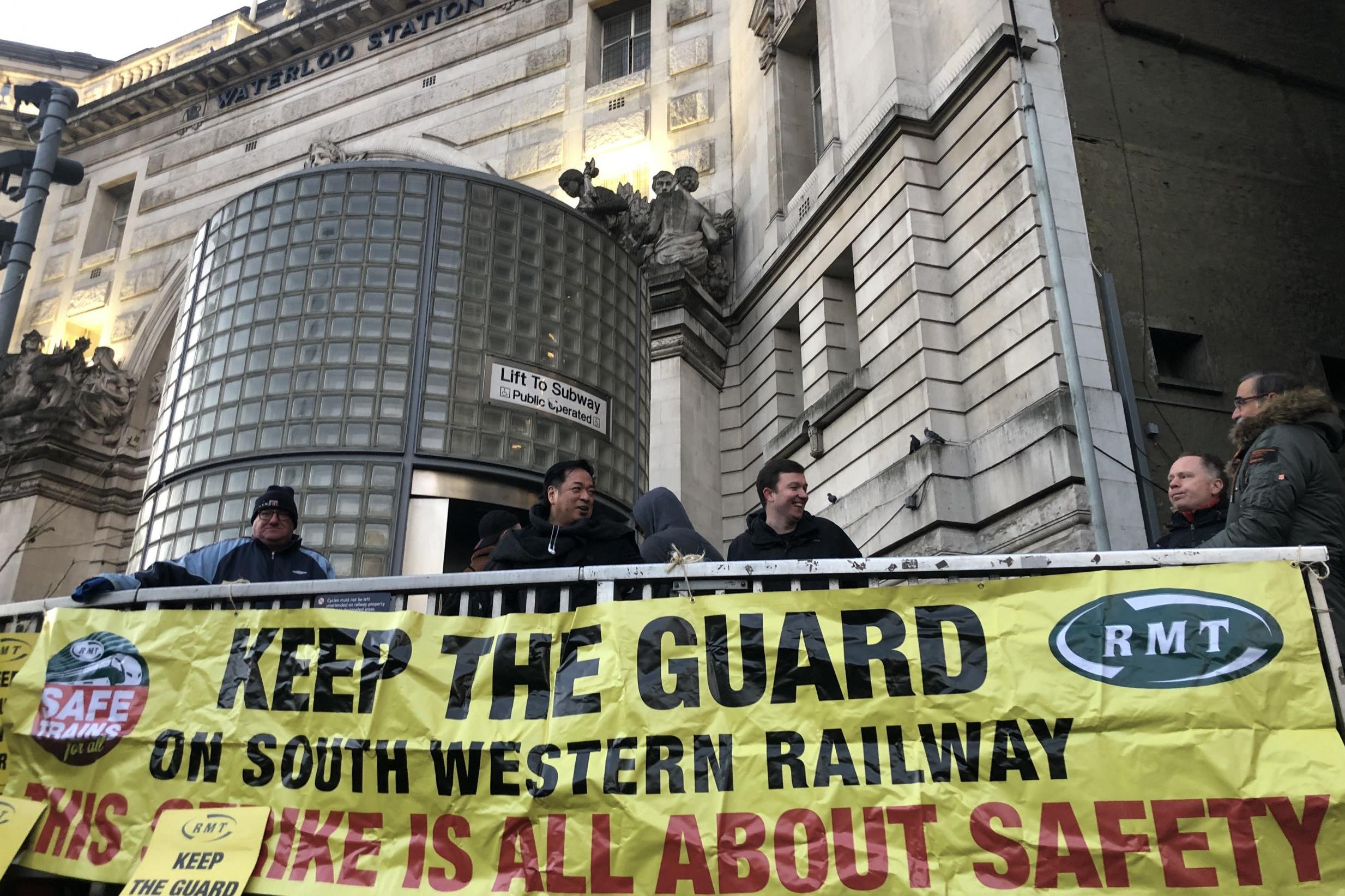South Western Railway boss promises more trains during strike chaos
Exclusive: ‘We’ll build on our timetable during the period of the strike’ – Andy Mellors, managing director, SWR
Your support helps us to tell the story
From reproductive rights to climate change to Big Tech, The Independent is on the ground when the story is developing. Whether it's investigating the financials of Elon Musk's pro-Trump PAC or producing our latest documentary, 'The A Word', which shines a light on the American women fighting for reproductive rights, we know how important it is to parse out the facts from the messaging.
At such a critical moment in US history, we need reporters on the ground. Your donation allows us to keep sending journalists to speak to both sides of the story.
The Independent is trusted by Americans across the entire political spectrum. And unlike many other quality news outlets, we choose not to lock Americans out of our reporting and analysis with paywalls. We believe quality journalism should be available to everyone, paid for by those who can afford it.
Your support makes all the difference.As the month-long strike on South Western Railway begins, the boss of the train operator has told The Independent he intends to step up the number of services running as the stoppage goes on.
Members of the RMT union working for the firm are taking industrial action for almost all of December.
As part of a long-running dispute over the role of guards, they plan to walk out every day from 2 to 31 December, except for the day of the general election (12 December), Christmas Day and Boxing Day.
Just over half the normal number of trains are running in and out for Britain’s busiest railway station, London Waterloo.
Major links to and from southwest London, Surrey, Hampshire and Berkshire are operating at reduced frequency, while some lines are closed altogether.
Andy Mellors, managing director of South Western Railway (SWR), said: “We absolutely share the frustration of our customers that the RMT have decided to call this unprecedented period of industrial action.
“It’s really important that we publish a timetable we have confidence in delivering. If we get more confident that we have more staff coming into work, then of course we will look to build on that, particularly at peak times when we know it’s going to be challenging for commuters.”
Most trains are being staffed by “contingency guards”, who are SWR employees working in different roles trained to work on passenger services.
In addition, up to one in four guards had come into work during previous spells of industrial action, according to SWR.
But the union’s general secretary, Mick Cash, said: “RMT members are standing rock solid and united on South Western Railway this morning as we begin a full month of strike action in support of the safest method of train operation and despatch.
“Cutting the guard out of the despatch process reduces the second person on the train to little more than a passenger in the longer term which would give the company the option of axing them all together at some point down the line.”

The union’s senior assistant general secretary, Steve Hedley, told The Independent that he was “shocked and astounded” with the way that a previous proposal by SWR was withdrawn. Mr Hedley said that it would have seen the doors opened by drivers but closed by the guards.
“There was clear political interference by the government,” said Mr Hedley.
But Mr Mellors said: ““We haven’t moved the goalposts. What we want to do is make our guards more customer-facing.
“On our suburban network, our station stops are every two to three minutes apart. Many of our customers don’t get to see our guards.
“Our proposals would actually make our guards more customer-facing, and deliver improvements in safety, security and accessibility, which is actually what the RMT said this dispute was about in the first place.”
The Labour Party has promised, if elected, to spend an extra £100m annually to restore guards on trains nationwide.
As the row continues, budget hotel rates in central London soared over £200 – partly through demand from commuters hit by the SWR strike.
The two Premier Inns nearest to Waterloo station were selling at more than £170, around 50 per cent more than the usual rates.
The Leicester Square property of the chain was advertising its “last few rooms” at £207.

Join our commenting forum
Join thought-provoking conversations, follow other Independent readers and see their replies
Comments